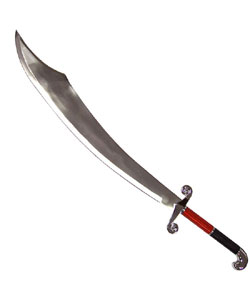Heading in the Right Direction?

For much of England’s, Scotland’s, and, after unification, the United Kingdom’s history, public beheading was a brutal but common method of executing those found guilty of treason. By the mid-18th century, though, the practice fell out of favor, likely because, again, it was brutal. On April 9, 1747, the Crown executed a Scottish Jacobite named Simon Fraser, Lord Lovat, for his alleged involvement in a rebellion (which he probably wasn’t all that involved in). This was the last public beheading in the UK. Two and a half centuries later, when Saudi Arabia executed a 24 year-old Sri Lankan woman named Rizana Nafeek (a horrible story and likely a massive miscarriage of justice) the United Kingdom specifically objected to the use of this method of execution: “We also find the practice of beheading particularly cruel and inhuman.”
The good news is that Saudi Arabia is likely going to stop beheading people. The bad news is that they’d be doing so not out of some sort of moral awakening, but for a pragmatic reason — supply and demand.
Specifically, there aren’t enough swordsmen, especially ones that show up on time.
Depending on one’s source — the Saudi government rarely provides reliable data here — Saudi Arabia executed between 50 and 100 people in 2012. (At least one person was beheaded after being found guilty of sorcery and witchcraft. Again, this is in 2012.) Until recently, beheading by sword was the method preferred by the government. In a report on Rizana Nafeek’s execution, ABC News explained the reasons for this preference, calling the practice “an historic form of execution ordered under sharia, or the Muslim religious law that governs the country.” But beheading, it turns out, is wildly impractical. Earlier this year, citing “shortages in official swordsmen or their belated arrival to execution yards in some incidents,” the Saudis formed a committee to explore whether death by firing squad was an acceptable option under sharia law. The goal: “to avoid interruption of the regularly-taken security arrangements.”
And as TIME noted on March 11, 2013, yes, firing squads were determined to be just fine. Nearly immediately, Saudi Arabia employed this new method of execution. On March 12, 2013, seven men accused of robbery were executed by the Saudi government, according to The National (a United Arab Emirates publication). One witness interviewed by the press agency responsible for that article specifically pointed out the new method of execution: “the execution was ‘at a public square in Abha,’ adding that the defendants were ‘shot dead’ and not beheaded as is customary in the kingdom.”
So it looks like, for the wrong reasons, Saudi Arabia’s use of public beheadings is going to come to a close. As for the remaining swordsmen? The headline of this blog post from Foreign Policy addresses that in a perfect yet unfathomable way: “Saudi swordsman unconcerned about country’s transition away from beheadings.” Why? Because the man they interviewed is getting firearms training (as are many of the other remaining swordsmen).
Bonus fact: Execution by firing squad is also mostly disfavored in the Western world, but in 2010, a man named Ronnie Lee Gardner was executed that way by the state of Utah. Six years earlier, Utah passed a law barring the practice, but did not apply it retroactively. Gardner was convicted and sentenced in 1985, but — as is typical for inmates condemned to death — spent years in the appellate process before ultimately being brought to the execution chamber. (That’s strange, perhaps, but it gets stranger. Those involved in carrying out the execution — from sharpshooters to security guards — were given a commemorative coin by the Utah Department of Corrections. Really.) There’s a chance we’ll see at least one other death by firing squad, too. In 2012, another of Utah’s Death Row inmates also chose to be executed in that fashion, but his matter is still pending appeal.
From the Archives: Texas’ Last Last Meal: Why Texas’ Death Row inmates no longer get to choose what they eat before they die.
Related: A desk guillotine.
